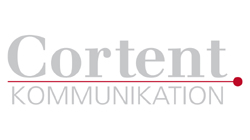The German Mittelstand

SMEs powerless to protect patents
The 2014 annual report by the German patent and brand regulator (Deutsches Patent- und Markenamt – DPAM) points to patents being the key towards increasing innovation; indeed the number of patents deposited last year increased by 4.4 percent to 66,000. Often, though, assurances of patent security isn’t worth the paper it’s written on. In the real world, smaller SMEs feel far from reassured that their patents are safeguarded from infringement. In a recent award-winning documentary aired by Mitteldeutscher Rundfunk on legal proceedings on patent infringement between SMEs and major conglomerates, patent expert Peter Hess of Bardehle Pagenberg PartnerschaftmbH spells it out. “Patents are just paper tigers”
The only real redress for theft of an idea is to sue. Court cases, however, are costly and drawn out. In addition to the legal costs, the plaintiff often has to pay for research, expert advice and legal consultancy. If the defendant is a large company, the claim stands a poorer chance. Conglomerates and major companies are fond of trumping the plaintiff by moving that the patent be declared null.
Prof. Dr. Christoph Ann, chair of economic law and intellectual property at Munich’s Technische Universität is very familiar with the situation. Powerful adversaries drag the fight through the three phases of justice up to the Federal Court (Bundesgerichtshof – BGH), and in addition they sue for patent nullity before the BGH. All this adds up to a long, costly drawn-out harangue for the plaintiff independently of the merit of his claim. Factor in the uncertainty of the verdict and the upshot is severe limitations on the SME’s freedom of decision in day-to-day business.
One wonders whether certain patents were infringed deliberately. As things stand at present, SME patent proprietors are virtually powerless to defend their rights and often the “little guy” has no choice but to accept the lesser of two evils and give in to the “big guy”, selling his patent off to forestall endangering his company’s survival.
The German government must act quickly. If it really means to promote entrepreneurship, it must guarantee the legal framework within which small SMEs are able to protect their intellectual property. We must never forget that the innovative, creative ideas that contribute in no small measure to our economy are spawned by very small companies. It would indeed be a great pity if that ingenuity and creativity were the very reasons for their downfall.















